Welcome to a historic city that blends spiritual depth with cultural richness. Known for its profound significance in Islamic history, this place attracts millions of pilgrims and tourists every year. Whether you’re drawn by its ancient landmarks or its vibrant traditions, there’s something here for everyone.
This article will guide you through the must-visit sites, from iconic shrines to bustling markets. You’ll also discover practical travel tips to make your visit seamless. Learn about the region’s history, explore its architectural marvels, and immerse yourself in local customs.
With a mix of modern comforts and ancient traditions, this destination offers a unique experience. Whether you’re a history enthusiast or a spiritual seeker, you’ll find plenty to explore. Dive into this guide to uncover the best ways to make the most of your time here.
Ready to plan your trip? Let’s get started on this journey through one of the world’s most fascinating cities. From the Imam Hussain Shrine to the Al-Hussainiya Market, every corner tells a story. Don’t miss out on the chance to experience this remarkable place for yourself.
: Discover the Spiritual Heritage of Karbala
Step into a city where spirituality and history intertwine. This ancient destination is a beacon of faith, drawing millions of pilgrims each year. Its sacred sites, like the Imam Hussain Shrine, stand as testaments to its deep religious roots.
The city’s spiritual energy is palpable, especially during the Arbaeen pilgrimage. Millions walk hundreds of kilometers to honor Imam Hussain’s sacrifice, creating a unique atmosphere of devotion and unity. This tradition, passed down through generations, reflects the region’s enduring values.
As you explore, you’ll marvel at the stunning Islamic architecture. The intricate designs of the shrines and monuments tell stories of faith and resilience. These sites are not just places of worship but also symbols of the city’s rich history.
Families here play a vital role in preserving these traditions. Many open their homes to pilgrims, offering food and shelter. This hospitality fosters a sense of community that’s truly inspiring.
Whether you’re visiting for the first time or returning, the city’s spiritual heritage will leave a lasting impression. Take your time to absorb its history, connect with its people, and experience its profound sense of purpose.
: Uncovering Karbala’s Rich Historical and Cultural Tapestry
Dive into a city where every brick tells a story of centuries past. This destination is a living testament to its layered history, offering a glimpse into its cultural evolution. From ancient ruins to towering minarets, every corner holds a piece of the past.
The Battle of Karbala in 680 CE marked a turning point in its history, shaping its identity for generations. This event, deeply rooted in the past, continues to influence the city’s cultural and spiritual fabric. As you explore, you’ll encounter remnants of this pivotal moment in its architectural treasures.
Walk through ancient alleys and marvel at the intricate structures that have stood the test of time. The city’s brick walls and towering minarets are symbols of resilience and craftsmanship. These landmarks, some dating back to the 7th century, offer a window into its enduring legacy.
Don’t miss the chance to visit the ruins of ancient palaces and fortresses. These sites, nestled against the backdrop of nearby mountains, provide a unique perspective on the city’s past. Each ruin tells a story of power, faith, and cultural exchange.
The National Museum plays a vital role in preserving this rich heritage. Here, you’ll find artifacts that bring the city’s history to life. From ancient manuscripts to intricate carvings, every piece offers a deeper understanding of its cultural tapestry. Take a guided tour to fully appreciate the significance of these treasures.
As you wander through this historic city, you’ll feel a profound connection to its past. Every step reveals a new layer of its story, inviting you to explore its way of life. Whether you’re a history enthusiast or a curious traveler, this journey through time will leave a lasting impression.
: Exploring the Imam Hussain Shrine
The Imam Hussain Shrine stands as a beacon of faith and architectural brilliance. This sacred site is not just a place of worship but a symbol of resilience and devotion. Its golden domes and intricate designs draw millions of pilgrims and visitors each year.
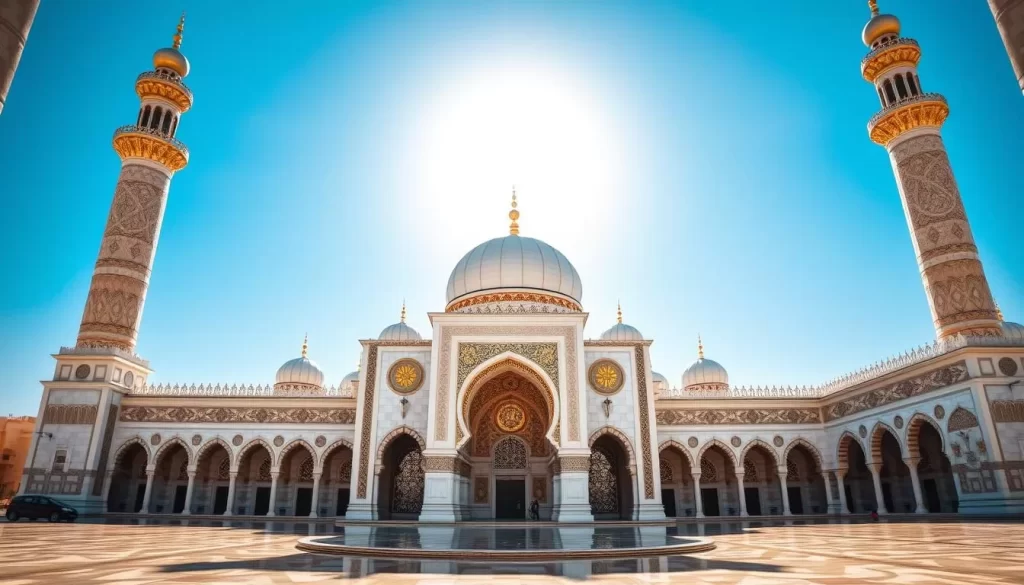
Architectural Marvels and Sacred Symbols
The shrine’s design is a stunning example of Islamic architecture. Its golden domes and towering minarets are visible from afar, creating a breathtaking skyline. The intricate tilework and calligraphy adorning the walls tell stories of faith and artistry.
Inside, the shrine features gender-segregated areas for visitors, ensuring a respectful and serene environment. The central courtyard, vast and open, is a space for reflection and prayer. Every detail, from the mosaics to the chandeliers, reflects centuries of craftsmanship.
Pilgrimage Insights and Rituals
For pilgrims, the shrine is a place of deep spiritual significance. Rituals here include prayer, recitation, and symbolic acts of devotion. The Arbaeen pilgrimage, which attracts millions annually, is a testament to the shrine’s enduring importance.
Visitors can join guided tours to learn about the shrine’s history and significance. These tours offer insights into the rituals and the stories behind the sacred symbols. Whether you’re a pilgrim or a curious traveler, the experience is both enlightening and moving.
| Aspect | Details |
|---|---|
| Architecture | Golden domes, intricate tilework, towering minarets |
| Rituals | Prayer, recitation, symbolic acts of devotion |
| Visitor Experience | Guided tours, gender-segregated areas, serene environment |
The Imam Hussain Shrine is more than a religious site; it is a journey through history and faith. Its beauty and significance leave a lasting impression on all who visit.
: Visiting the Al-Abbas Holy Shrine: Architecture and Spirituality
The Al-Abbas Holy Shrine is a masterpiece of Islamic art and spirituality, drawing visitors from around the world. This sacred site is not only a place of worship but also a testament to the region’s rich cultural heritage. Its stunning architecture and intricate designs make it a must-visit destination for anyone exploring the ancient city.
Interior Design and Sacred Artifacts
Step inside the shrine, and you’ll be greeted by breathtaking mosaics, delicate calligraphy, and ornate chandeliers. The interior is a harmonious blend of art and faith, showcasing centuries of craftsmanship. Sacred relics and artifacts are displayed throughout, offering a glimpse into the shrine’s spiritual significance.
One of the highlights is the central prayer hall, adorned with intricate tilework and symbolic motifs. The space is designed to inspire reflection and devotion, creating a serene atmosphere for visitors. Guided tours are available to help you understand the cultural and historical context of these artistic treasures.
Visiting Protocol and Etiquette
When visiting the shrine, it’s essential to follow proper etiquette to show respect for its sacred nature. Dress modestly, covering your shoulders and knees, and remove your shoes before entering. Silence and mindfulness are encouraged to maintain the shrine’s peaceful environment.
Families often visit together, fostering a sense of community and shared spirituality. The shrine is open daily from 08:00 am to 08:00 pm, making it accessible for pilgrims and tourists alike. Entry is free, ensuring everyone can experience its beauty and significance.
| Aspect | Details |
|---|---|
| Interior Design | Mosaics, calligraphy, chandeliers, sacred relics |
| Visiting Hours | 08:00 am to 08:00 pm |
| Etiquette | Modest dress, remove shoes, maintain silence |
Whether you’re on a spiritual journey or exploring the region’s architecture, the Al-Abbas Holy Shrine offers a profound experience. Take your time to appreciate its artistry and immerse yourself in its spiritual atmosphere.
: Karbala, Iraq: Best Things to Do – Top Picks
Explore a city where spirituality, history, and culture converge in a unique blend. This destination offers a mix of sacred sites, vibrant markets, and ancient landmarks. Whether you’re a pilgrim or a curious traveler, there’s something here for everyone.
Start your journey at the Imam Hussain Shrine, a symbol of faith and architectural brilliance. Its golden domes and intricate designs are a sight to behold. Entry is free, making it accessible to all.
Next, visit the Al-Abbas Holy Shrine, another masterpiece of Islamic art. Its stunning mosaics and sacred relics offer a glimpse into the region’s spiritual heritage. Don’t forget to explore the nearby Al-Hussainiya Market for unique souvenirs and local handicrafts.
For history enthusiasts, the Karbala Heritage Museum is a must. It houses artifacts that narrate the city’s significance in Islamic culture. The museum’s collection provides a deeper understanding of the region’s past.
Take a stroll through the ancient alleys and marvel at the traditional mud-brick houses. These structures reflect the city’s historical architecture and offer a glimpse into its enduring legacy.
Here’s a quick guide to the top activities in the city:
| Activity | Highlights |
|---|---|
| Visit Sacred Shrines | Imam Hussain Shrine, Al-Abbas Holy Shrine |
| Explore Markets | Al-Hussainiya Market, local handicrafts |
| Discover History | Karbala Heritage Museum, ancient alleys |
| Experience Culture | Traditional mud-brick houses, local customs |
This place blends tradition with modernity, offering a unique experience for every visitor. Use this guide to plan your journey and make the most of your time in this remarkable city.
: Navigating the Traditional Markets and Bazaars
Immerse yourself in the vibrant energy of traditional markets. These bustling hubs are the lifeblood of the city, offering a sensory feast of colors, scents, and sounds. Every corner tells a story of the region’s rich heritage and craftsmanship.
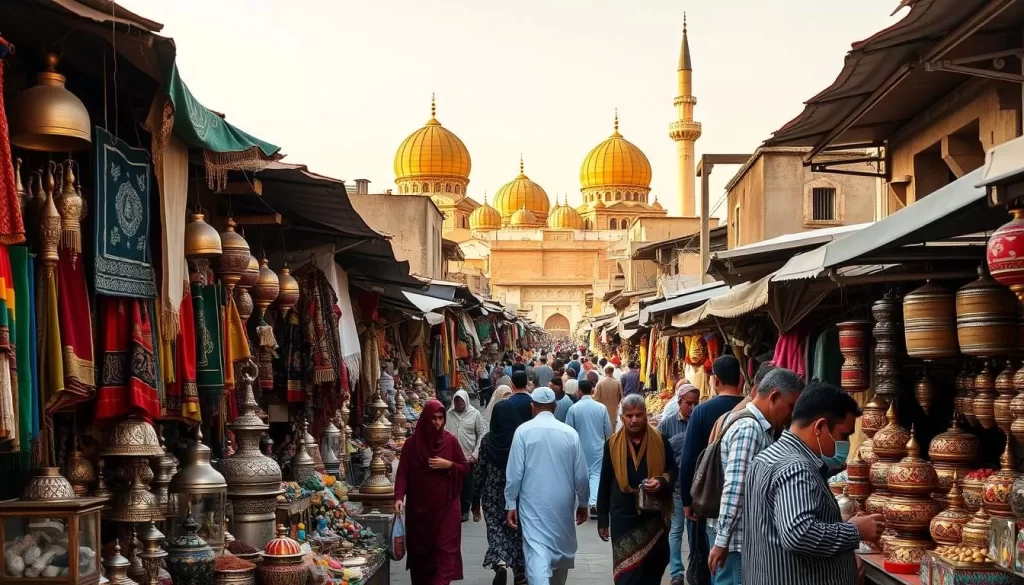
As you wander through the narrow streets, you’ll find stalls brimming with handmade treasures. From intricately woven textiles to hand-painted ceramics, each item reflects the skill of local artisans. Take your time to explore and connect with the people behind these crafts.
Discover Local Handicrafts and Souvenirs
The markets are a treasure trove of unique souvenirs. Look for items like traditional prayer beads, embroidered fabrics, and silver jewelry. These pieces make perfect gifts or keepsakes to bring a piece of the town back home.
Engaging with vendors is part of the experience. Many are happy to share the history and significance of their crafts. Don’t hesitate to ask questions or learn about the techniques used to create these beautiful items.
Here are some tips to make the most of your visit:
- Bargain respectfully: Negotiating is common in the market, but always do so with a smile and friendly attitude.
- Know the price range: Research typical costs beforehand to avoid overpaying.
- Visit early: The bazaar is less crowded in the morning, giving you more time to explore.
These markets are more than just shopping destinations. They are social hubs where locals gather, share stories, and celebrate their culture. Every way you turn, you’ll find a new opportunity to connect with the heart of the city.
Whether you’re searching for a unique souvenir or simply soaking in the atmosphere, the traditional markets offer an unforgettable experience. Take your time, embrace the chaos, and let the town’s spirit guide you.
: Savoring Iraqi Cuisine: Culinary Delights in Karbala
Discover the heart of Iraqi cuisine in a city rich with flavor and tradition. From smoky grilled fish to sweet, flaky pastries, every dish tells a story of the region’s heritage. Whether you’re dining in a family-run restaurant or exploring bustling markets, the culinary experience here is unforgettable.
Start your culinary journey with masgouf, a traditional grilled fish dish that’s a staple in the city. Cooked over an open flame, it’s often served with fresh herbs and flatbread. Pair it with quzi, a hearty lamb and rice dish, for a true taste of local flavors.
For dessert, don’t miss baklava, a sweet pastry layered with nuts and honey. Many restaurants and street vendors offer their own versions, each with a unique twist. These treats are perfect for sharing with family or friends.
When it comes to dining, the city offers a mix of casual eateries and upscale restaurants. Rooftop diners provide stunning views of the minarets and brick structures, creating a memorable atmosphere. Prices are generally affordable, with most meals costing between $10 and $20.
Here’s a quick tip: Visit local markets like Al-Hussainiya to sample fresh ingredients and regional specialties. These bustling hubs are a great place to connect with locals and learn about traditional food preparation.
For a deeper dive into the history of Iraqi cuisine, consider joining a guided tour. These experiences often include visits to historic sites and hands-on cooking classes. It’s a fantastic way to immerse yourself in the culture and bring home new recipes.
Whether you’re a food enthusiast or a curious traveler, the culinary scene here offers something for every person. Take your time to savor the flavors, explore the markets, and enjoy the warm hospitality that defines this remarkable place.
: Experiencing Local Customs and Cultural Festivities
Experience the heart of tradition and spirituality through the vibrant customs and festivals of this historic region. These events are deeply rooted in the history of the area, offering a unique glimpse into its cultural fabric. From grand religious processions to intimate family gatherings, every celebration tells a story of faith and community.
Participating in Time-Honored Religious Festivals
Religious festivals like Ashura and Arbaeen are central to the region’s identity. Ashura, observed on the 10th day of Muharram, involves large processions with thousands of participants. These events create a deeply communal and emotional atmosphere, drawing people from all walks of life.
Arbaeen, marking the end of the 40-day mourning period for Imam Hussain, is another significant event. Millions of pilgrims walk to the shrines, creating a powerful sense of unity and devotion. These rituals have been passed down for generations, reflecting the enduring values of the city’s people.
Families play a vital role in these celebrations, often opening their homes to visitors. This hospitality fosters a sense of community that’s truly inspiring. Whether you’re a visitor or a local, participating in these events offers a transformative experience.
Practical Tips for Cultural Festivities
When attending these festivals, it’s important to respect local customs. Dress modestly and be mindful of the solemn nature of some events. Here are a few tips to enhance your experience:
- Plan ahead: Festivals can be crowded, so arrive early to secure a good spot.
- Engage with locals: Many are happy to share the history and significance of the rituals.
- Stay hydrated: Events often last for hours, so bring water and snacks.
These festivals are not just about religious observance; they are a celebration of family, community, and shared values. The blend of art, music, and devotion creates an unforgettable atmosphere.
| Festival | Highlights |
|---|---|
| Ashura | Large processions, communal gatherings, emotional rituals |
| Arbaeen | Mass pilgrimages, family hospitality, spiritual unity |
Immerse yourself in the vibrant energy of these cultural events. Whether you’re exploring the ancient city’s historic sites or joining a procession, the experience will leave a lasting impression. Take your time to connect with the people and traditions that make this region so unique.
: Immersing Yourself in the Karbala Old City
Step back in time as you wander through the ancient streets of this historic city. Every corner tells a story of resilience and tradition, inviting you to explore its rich heritage. The old city quarter is a treasure trove of timeworn structures, narrow alleys, and iconic landmarks that reflect centuries of history.
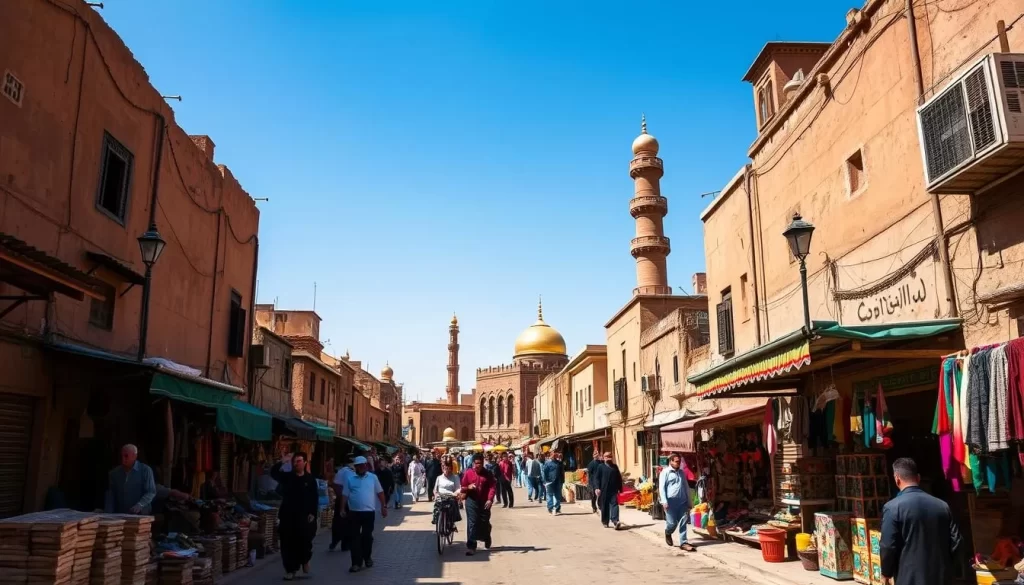
Exploring Ancient Alleys and Iconic Landmarks
As you stroll through the narrow alleys, you’ll be surrounded by centuries-old mud-brick houses. These structures, with their weathered walls, stand as silent witnesses to the city’s past. The intricate designs and traditional architecture offer a glimpse into the craftsmanship of earlier generations.
Iconic landmarks like ancient gateways and historic mosques dot the landscape. Each wall and minaret carries a piece of the city’s story, from its spiritual roots to its cultural evolution. The Al-Mukhayam Mosque, dating back to the 8th century, is a prime example of Islamic architecture that has stood the test of time.
Ruins scattered throughout the area add to the city’s charm. These remnants of the past provide insight into the historical events that shaped the region. Exploring these ruins is like stepping into a living museum, where every stone has a tale to tell.
To fully grasp the heritage embedded in every corner, consider taking a guided tour. Local guides offer valuable insights into the significance of each structure and the stories behind them. This immersive experience will deepen your understanding of the city’s history and culture.
The atmosphere of the old town is a unique blend of tradition and daily life. As you walk through the streets, you’ll encounter vibrant markets, friendly locals, and a sense of community that’s truly heartwarming. Don’t forget to capture these moments with your camera, as the blend of heritage and modern life is something to cherish.
Exploring the old city is more than just a journey through time; it’s an opportunity to connect with the soul of this remarkable town. Whether you’re a history enthusiast or a curious traveler, the experience will leave a lasting impression. For more insights into the city’s rich heritage, visit this .
: Delving into Museums and Heritage Sites
Uncover the layers of history preserved in the museums and heritage sites of this ancient region. These places offer a fascinating glimpse into the city’s storied past, showcasing artifacts and monuments that tell tales of resilience and cultural evolution.
Start your journey at the Karbala Heritage Museum, home to a rich collection of relics, calligraphy, and archaeological finds. Each piece offers a deeper understanding of the region’s significance in Islamic culture. From ancient manuscripts to ceremonial objects, the museum is a treasure trove for history enthusiasts.
Heritage sites like ancient palaces and monumental structures contribute to the city’s narrative. The interplay of brick architecture and modern conservation efforts highlights the enduring legacy of these sites. Exploring these places is like stepping into a living museum, where every stone has a story to tell.
Here are some tips to enhance your visit:
- Plan ahead: Visit during cooler months (November to April) for a more comfortable experience.
- Join a guided tour: Local guides provide valuable insights into the significance of each site.
- Take your time: Explore every nook and cranny to fully appreciate the legacy preserved here.
For a deeper dive into the history of this ancient city, consider visiting , an ancient city near Baghdad. This site offers a unique perspective on Mesopotamian culture and architecture.
| Site | Highlights |
|---|---|
| Karbala Heritage Museum | Relics, calligraphy, archaeological finds |
| Ancient Palaces | Monumental structures, brick architecture |
| Dur-Kurigalzu | Ziggurat, palace complex, guided tours |
Whether you’re a person passionate about history or a casual visitor, these museums and heritage sites offer a unique way to connect with the past. Take your time to explore and immerse yourself in the rich cultural tapestry of this remarkable region.
: Practical Travel Tips for Your Karbala Journey
Planning your trip to this historic destination? Here’s how to make it seamless. Whether you’re arriving by air or ground, these tips will help you navigate the region with ease. From transportation options to the best time to visit, we’ve got you covered.
Getting There: Transportation and Access Points
Reaching this city is straightforward with multiple options. The nearest airport is about 90 kilometers away, with regular flights from major hubs. From there, you can take a taxi or bus to the city center. Shared taxis are a popular and affordable choice, costing around $20 for a one-way trip.
If you prefer public transport, buses run frequently and are a budget-friendly option. The journey takes approximately two hours, depending on traffic. For a more comfortable ride, consider hiring a private car, which offers flexibility and convenience.
Once in the city, local taxis and apps like Careem are reliable for getting around. Walking is also a great way to explore the streets and soak in the atmosphere. Keep in mind that modesty in dress is expected, especially near religious sites.
Choosing the Best Time to Visit
The ideal time to visit is between November and April when the weather is mild. Summers can be extremely hot, with temperatures often exceeding 40°C (104°F). Visiting during cooler months ensures a more comfortable experience, especially if you plan to explore outdoor sites.
If you’re attending festivals like Ashura or Arbaeen, expect large crowds. These events are deeply spiritual but can be overwhelming for first-time visitors. Plan ahead and arrive early to secure a good spot.
For a quieter experience, consider visiting during off-peak hours. Early mornings or late afternoons are perfect for exploring markets and museums without the hustle and bustle.
| Transportation Option | Details |
|---|---|
| Taxi | Shared or private, affordable and convenient |
| Bus | Budget-friendly, frequent schedules |
| Private Car | Flexible, ideal for families or groups |
For more insights into cultural events like Ashura, check out this . It offers valuable tips on navigating religious festivals and understanding local customs.
With these practical tips, your journey will be smooth and memorable. Plan ahead, stay hydrated, and embrace the rich culture of this remarkable destination.
: Ensuring Safety and Comfort on Your Pilgrimage
Embarking on a pilgrimage to this historic region requires thoughtful preparation and awareness. Your journey can be both enriching and safe with the right guidance. Here are practical tips to ensure your experience is seamless and fulfilling.
First, prioritize your health by staying hydrated and carrying essential medications. The climate can be harsh, especially during peak seasons, so dress modestly and wear comfortable footwear. Respect local customs, such as covering your shoulders and knees, especially when visiting religious sites like the mosque.
For personal security, keep your valuables close and avoid displaying expensive items. Large gatherings, such as festivals, can be overwhelming, so stay aware of your surroundings. Use reputable tour guides who are familiar with the area to enhance your safety and understanding of the region.
Accommodation arrangements should be made in advance. Choose trusted hotels or guesthouses that offer secure facilities. Many persons prefer staying near religious sites for convenience, but ensure the place is well-reviewed and safe.
Transportation is another key factor. Opt for licensed taxis or private drivers recommended by your hotel. Avoid unmarked vehicles to prevent scams. Domestic flights are available for longer distances, providing a quick and safe travel option.
Here’s a quick guide to ensure a smooth pilgrimage:
| Aspect | Details |
|---|---|
| Health | Stay hydrated, carry medications, dress modestly |
| Security | Secure valuables, use reputable guides, stay aware |
| Accommodation | Book in advance, choose secure facilities |
| Transportation | Use licensed taxis, avoid unmarked vehicles |
By following these tips, you can focus on the spiritual essence of your journey. Respect local customs, stay prepared, and embrace the rich history and culture of this remarkable ancient city.
: Discovering Nearby Attractions and Excursions
Venture beyond the bustling streets to uncover hidden gems that enrich your journey. This region offers a variety of day trips and short excursions, perfect for those looking to explore beyond the main city. From ancient ruins to vibrant markets, there’s something for every person to enjoy.
One must-visit destination is Nineveh, an ancient city that dates back over 4,000 years. Its reconstructed gate showcases Assyrian architectural skills, while the Tomb of Prophet Jonah stands as a significant religious site. These structures offer a glimpse into the history and culture of the region.
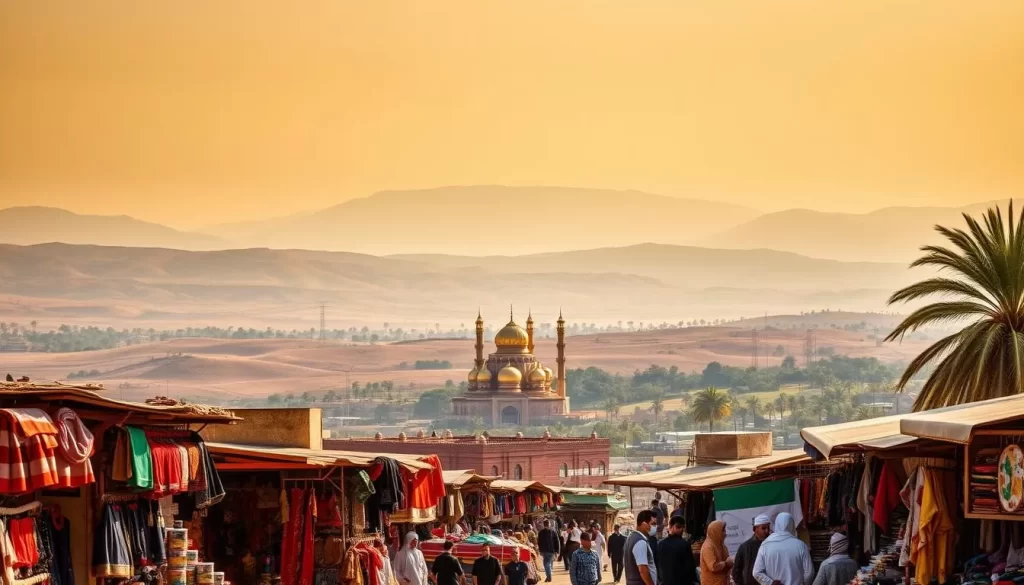
For nature enthusiasts, the Mesopotamian Marshes are a must-see. Once drained to just 10% of their size, they are now undergoing recovery, offering a unique ecosystem to explore. This place is perfect for those seeking a blend of adventure and tranquility.
Here are some practical tips for planning your excursions:
- Plan ahead: Research transportation options and travel time to ensure a smooth trip.
- Join a guided tour: Local guides provide valuable insights into the significance of each site.
- Visit early: Many attractions are less crowded in the morning, offering a more enjoyable experience.
Exploring smaller towns and local markets can also provide authentic experiences. These places often reflect the true essence of the region, allowing you to connect with its people and traditions.
For more insights into the growing interest in tourism in this region, check out this . It highlights the unique experiences available, despite ongoing challenges.
| Attraction | Highlights |
|---|---|
| Nineveh | Reconstructed gate, Tomb of Prophet Jonah |
| Mesopotamian Marshes | Unique ecosystem, recovery efforts |
| Local Markets | Authentic experiences, traditional crafts |
By venturing beyond the main city, you’ll discover a richer, more diverse cultural landscape. Take your time to explore these nearby attractions and create lasting memories of your journey.
: An Insider’s Guide to Accommodations and Dining Options
Finding the perfect place to stay and dine can make or break your travel experience. Whether you’re looking for a cozy guesthouse or a luxurious hotel, this guide will help you navigate the options with ease. From budget-friendly stays to upscale dining, we’ve got you covered.
From Budget Guesthouses to Luxury Hotels
Accommodations in this region range from modest guesthouses to five-star hotels. Budget options often provide a warm, home-like atmosphere, perfect for travelers looking to save on price. Many guesthouses are located near key attractions, making them a convenient choice for exploring the city.
For those seeking more comfort, luxury hotels offer top-notch amenities like spas, pools, and fine dining. These structures often blend modern design with traditional elements, giving you a taste of the region’s rich history. Prices for luxury stays typically range from $100 to $300 per night, depending on the season.
Dining Recommendations
When it comes to dining, the city offers a mix of local restaurants and street food vendors. For a true taste of the region, try masgouf, a traditional grilled fish dish. Pair it with quzi, a hearty lamb and rice meal, for a complete experience.
Street food is another great option, with vendors offering everything from falafel to sweet pastries like baklava. These treats are perfect for sharing with family or friends. Prices for street food are generally under $5, making it an affordable choice for budget-conscious travelers.
Practical Tips for Your Stay
Here are some tips to ensure a smooth and enjoyable visit:
- Book early: Popular accommodations fill up quickly, especially during peak seasons.
- Compare prices: Use platforms like Almosafer to find the best deals.
- Explore local markets: These bustling hubs are great for finding fresh ingredients and regional specialties.
Whether you’re a history enthusiast or a curious traveler, the right accommodations and dining options can enhance your journey. Take your time to explore and enjoy the unique blend of comfort and authenticity this place has to offer.
: Blending Modern Comforts with Ancient Traditions
Discover a city where ancient traditions meet modern comforts. This unique place seamlessly combines its rich history with contemporary amenities, offering a travel experience like no other. From luxury hotels to traditional markets, every corner tells a story of harmony between the past and present.
Modern developments in the region respect and complement the traditional architecture. New hotels and restaurants are designed to blend with the brick structures and minarets, preserving the city’s authentic charm. This careful balance ensures that visitors enjoy modern conveniences without losing the essence of the ancient city.
One standout example is the integration of contemporary tour services with historic sites. Guided tours now offer state-of-the-art audio systems and interactive maps, enhancing your understanding of the ruins and palaces. These innovations make exploring the region’s history both engaging and informative.
For those seeking a deeper connection, the local markets provide a glimpse into daily life. Here, you can shop for traditional crafts while enjoying modern amenities like air-conditioned stalls and digital payment options. This blend of old and new ensures a comfortable yet authentic experience.
Here’s a tip: Plan your time to explore both the modern and traditional sides of the city. Start your day with a visit to the museum or a historic structure, then unwind at a chic café or rooftop restaurant. This way, you’ll experience the best of both worlds.
For a comprehensive journey that blends modern comforts with ancient traditions, consider the tour. It offers a perfect mix of cultural exploration and modern amenities, ensuring a memorable trip for every person.
Whether you’re traveling with family or exploring solo, this city offers a unique blend of old and new. Take your time to immerse yourself in its rich history while enjoying the comforts of modern life. It’s a place where tradition and innovation coexist beautifully.
: Conclusion
As you prepare to explore this remarkable destination, you’ll find a blend of ancient traditions and modern comforts that make it truly unique. From the spiritual significance of its shrines to the vibrant energy of its markets, every corner of this city tells a story of resilience and faith.
This place offers a rich tapestry of history and culture, inviting you to immerse yourself in its enduring legacy. Whether you’re visiting its iconic structures or savoring local cuisine, the experience is both enriching and unforgettable. Use the tips shared in this guide to plan a seamless and meaningful tour.
For a deeper understanding of the region’s spiritual traditions, consider exploring resources like In. This journey is more than a visit—it’s a chance to connect with a world where the past and present coexist beautifully.
Take your time to explore, reflect, and create lasting memories in this extraordinary region. The enduring legacy of this ancient city awaits every person who steps into its storied streets.
The above is subject to change.
Check back often to TRAVEL.COM for the latest travel tips and deals.
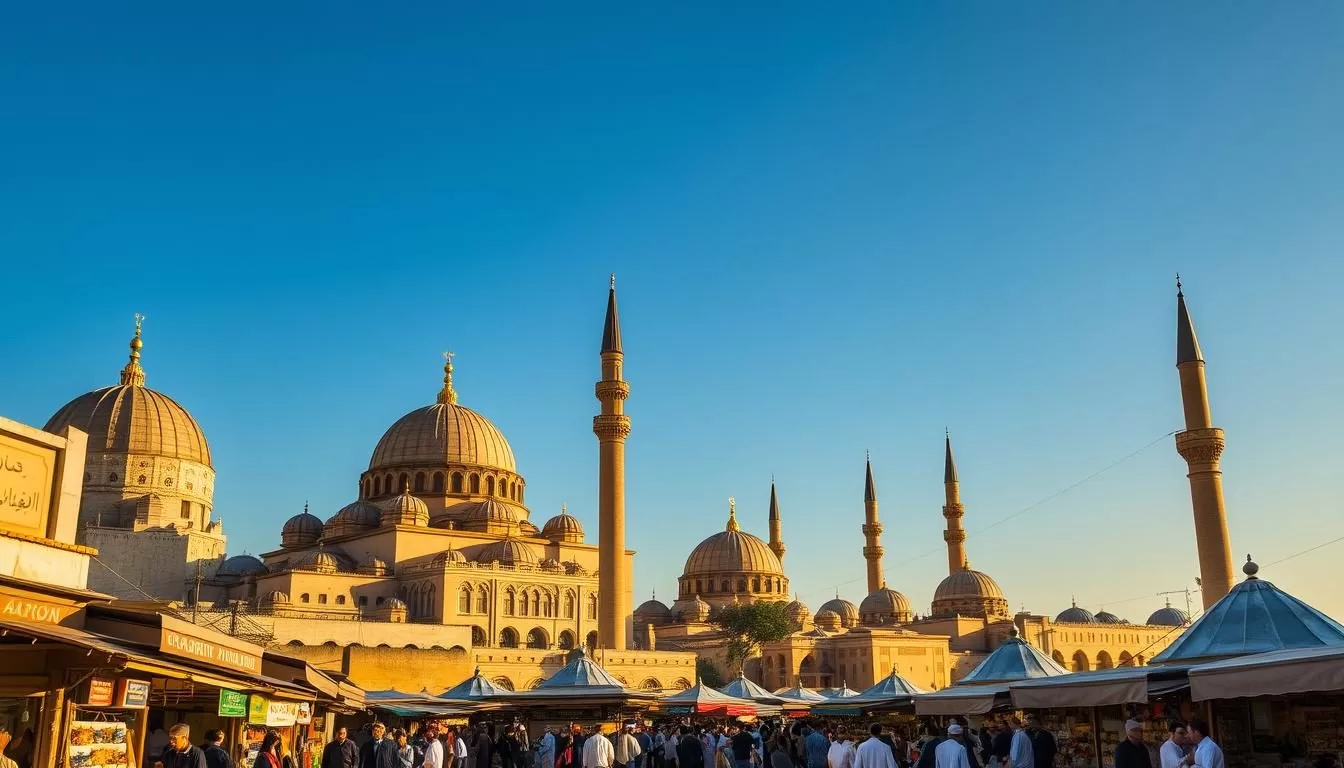

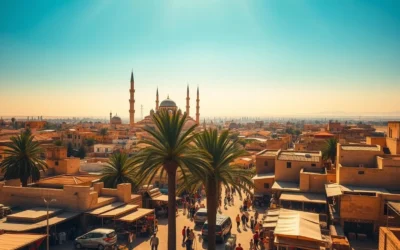
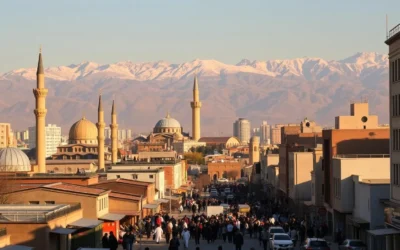
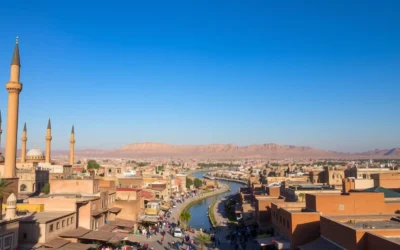
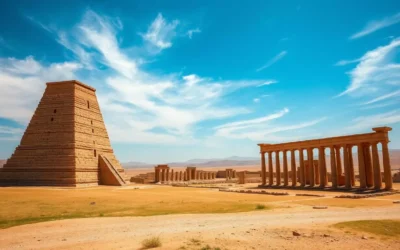
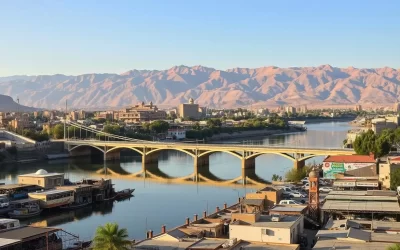
0 Comments